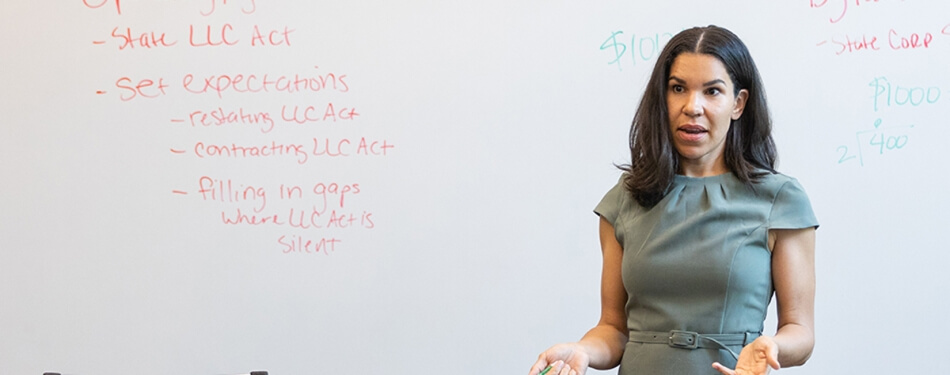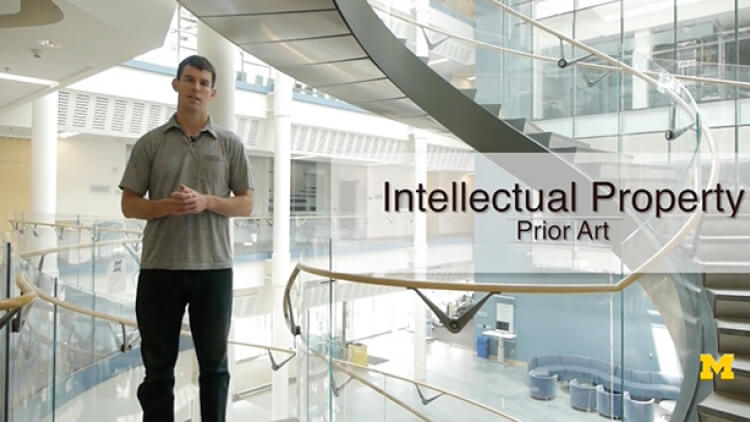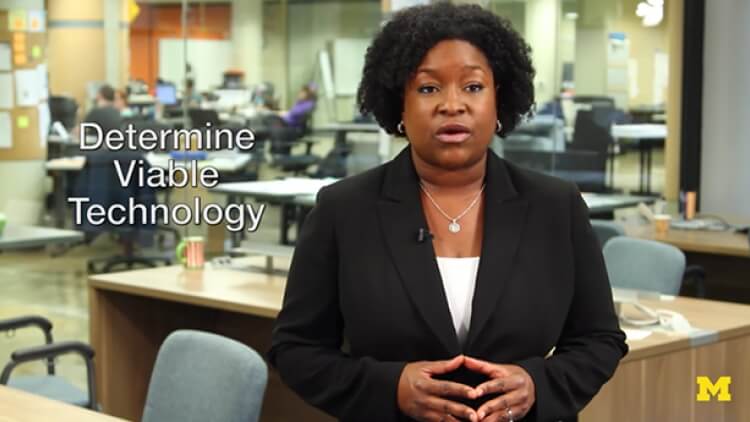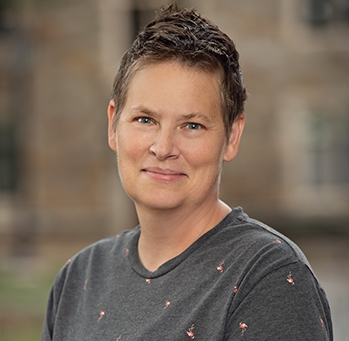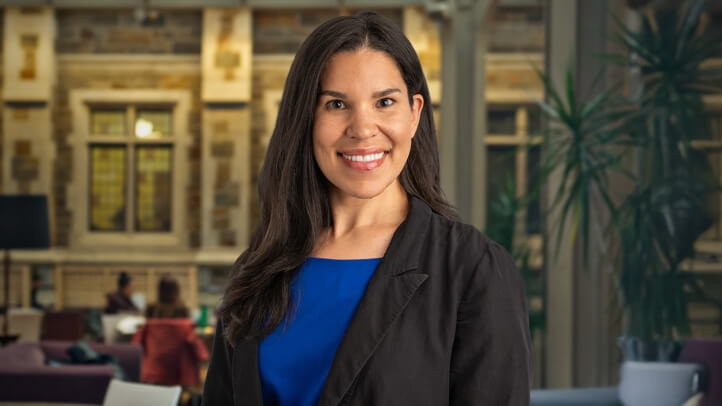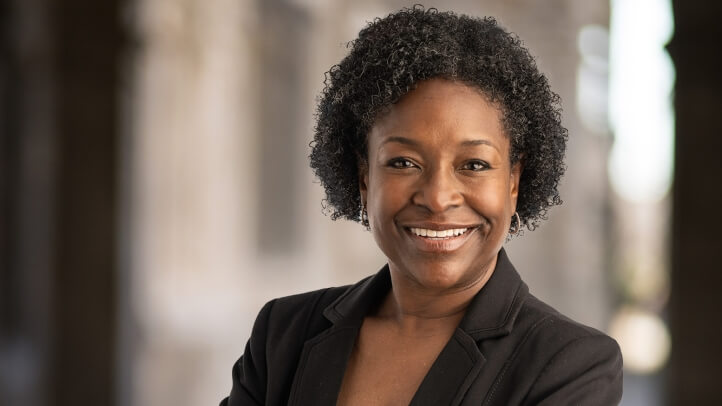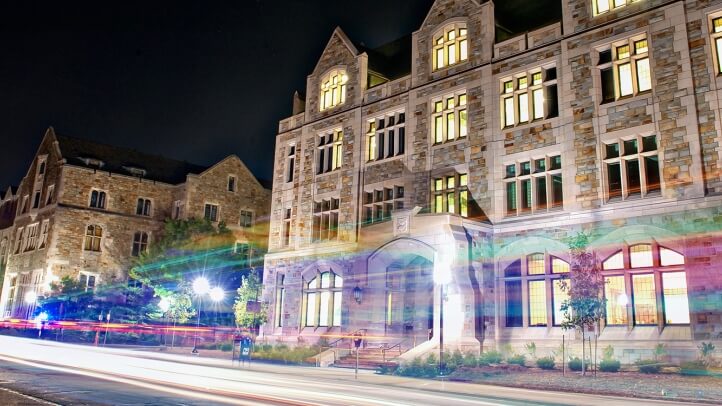Michigan Law’s Zell Entrepreneurship Clinic is an innovative clinical law program that represents and advises University of Michigan student-led entrepreneurial ventures and other entrepreneurial ventures.
The first of its kind in the United States, the Zell Entrepreneurship Clinic plays a central role in the entrepreneurial ecosystem at the University of Michigan and beyond.
Since its inception in 2012, the clinic has provided no-cost legal services to a significant number of student-led and other startups. We offer an array of services and resources including direct legal representation, office hours, workshops, and blog posts with current information about entrepreneurial legal issues. We also host the Ann Arbor New Tech meetup. The direct legal services we offer includes entity formation, intellectual property protection, advice on worker classification issues, advice on various contracts, financing and deal-making.
These services help innovators launch and grow their businesses. The clinic also provides law students with the real-life experience needed to help early-stage companies after they graduate from law school.
The Zell Entrepreneurship Clinic offers office hours by appointment throughout the school year.
Sign up to chat with a startup lawyer if you are in the early stages of your entrepreneurship journey and have a law-related question. Personalized legal advice cannot be provided during office hours. Still, the clinic can provide helpful information about the law as it relates to startups.
To sign up for a 15-minute session, email the clinic administrator, Barb Vibbert, at [email protected].
The Name, Image, and Likeness (NIL) Program offers pro bono legal representation to U-M athletes. The NIL Program hosts weekly office hours at the Ross Academic Center, workshops on topics such as how to read contracts, and one-on-one meetings with Student Athletes.
Pursuant to the NCAA interim policy, this program is a part of the larger Zell Entrepreneurship Clinic, which provides pro bono transactional legal services to any U-M student entrepreneur.
The Zell Entrepreneurship Clinic offers educational information to the local and University of Michigan community.
By providing this educational information, the clinic is not forming any attorney-client relationship nor does this information constitute legal advice. You should consult your own attorney to receive specific legal counsel related to your particular situation. In order to become a client of the clinic and receive legal advice from the clinic, you must apply for legal services.
If accepted as a client, both the clinic and you must sign a formal written engagement letter before there will exist an attorney-client relationship between the clinic and a client and before the clinic will provide any legal advice to a client.
Information for Students
-
How do law students apply to the Zell Entrepreneurship Clinic?
Second- and third-year law students should register for the seven-credit clinic through the Law School’s computerized registration system.
-
Are there prerequisites for taking the clinic?
There are no prerequisites for taking the clinic. Because much of the client work will be in corporate, tax, intellectual property, and other business areas, students will likely find prior course work in those areas helpful.
-
Is the clinic graded?
The clinic is a seven-credit course—three for the seminar and four for the client work. Both portions are graded.
-
How often will the clinic meet?
The clinic includes a three-credit seminar. The classroom component addresses topics including how to effectively represent entrepreneurial ventures, interviewing and counseling clients, negotiating and drafting documents, planning client matters, cross-cultural lawyering, entity formation, financing the entity, intellectual property, legal ethics, and other relevant topics. Clinic students also participate in “case rounds” in which they present and discuss the various matters the clinic is handling.
Beyond the seminar class meetings, the clinic involves frequent meetings with the clinic faculty, clients, and fellow student attorneys.
Law students taking the clinic should expect a significant amount of work (including independent research and education) to sufficiently address the diversity of legal needs that entrepreneurs present. Student attorneys should expect to spend at least 12-16 hours each week representing their clients. In addition to this client representation, student attorneys attend four hours of class each week, prepare for each class, meet with their supervising faculty, attend local entrepreneurial events, and plan and deliver educational sessions (e.g., office hours, presentations, and publications) to the local community. Student attorneys will have a set five-hour period each week when they must be present in the clinic space. In short, law students taking the clinic should plan their semester accordingly so they can devote the necessary time to the clinic and their clients.
-
Can non-law students take the clinic?
Because the clinic focuses on teaching how to advise entrepreneurial ventures in the capacity as a lawyer, only law students may apply to be students in the clinic. On the other hand, any University of Michigan student may apply to be a client of the clinic.
-
Is it difficult for a law student to get into the clinic?
The clinic has experienced high demand from law students. The clinic seeks to admit a well-rounded group of student attorneys that can sufficiently meet the legal needs of the clinic clients.
-
What types of clients will the clinic serve?
The clinic’s clients will come from U-M’s exceptional student body, including those from the engineering, business, and medical schools as well as entrepreneurial ventures in Ann Arbor, Detroit, and Southeastern Michigan.
Information for Clients
-
Who are the clients of the Zell Entrepreneurship clinic?
The clinic represents student-led and other entrepreneurial ventures. Clients may include U-M undergraduate and graduate student-led businesses or individual student inventors. The clinic also represents U-M alumni concerning technology invented as a student at U-M.
The clinic generally will not represent ventures concerning University-held intellectual property. Therefore, if your technology was invented or jointly invented by a U-M employee, you should consult U-M’s Office of Technology Transfer for advice concerning your technology.
-
What kinds of legal services does the clinic offer?
The clinic offers transactional and counseling legal services in the following areas:
- Selecting and forming a legal entity and structuring ownership and capital
- Counseling concerning intellectual property (e.g., copyright, trademark, patent, and trade secret)
- Drafting and negotiating contracts
- Advising on real-estate matters
- Advising on employment law issues
- Assisting on fundraising and finance issues
The Clinic generally does not provide the following services:
- Litigation or dispute resolution
- Pure tax advice
- Immigration law
-
How much does the clinic charge?
The clinic does not charge for its services, although clients are responsible for expenses related to their matter. For example, the fees for filing the Articles of Organization for a Michigan LLC start at $50.
-
How does one apply for the clinic’s services?
You may apply to become a client of the clinic by submitting the application form.
The clinic may contact you for additional information. The clinic accepts applications on an ongoing basis. While the clinic hopes to serve as many clients as possible, the clinic typically only has resources to accept a small number of the clients that apply. A representative from the clinic will contact you shortly after we receive your application. If you have pressing legal needs, however, please do not wait to hear from the clinic before pursuing other potential legal service providers.
The clinic will select its clients based on various criteria, such as the following:- The requested services are appropriate for law students
- The requested services present an interesting educational opportunity for the clinic’s law students
- Any deadlines for the services are consistent with the educational mission of the clinic, its semester schedule, and its resources
- The services are likely to significantly assist the client’s entrepreneurial efforts
- The client has a demonstrated commitment to furthering his/her venture and is able to actively and responsively engage with the clinic’s student attorneys and faculty.
Also, please note that as a general rule, the clinic will not represent one student against another in any ownership dispute. Accordingly, the clinic will generally not take on a client (or will have to pause from representing a client) if a genuine dispute over rights in the client’s technology exists or arises. Also, as another general rule, the clinic will not represent a client on an issue adverse to U-M.
-
Who provides the services in the clinic?
A client’s primary advisors will be second- and third-year law students closely supervised by experienced clinical faculty. On occasion, attorneys in private practice also will assist the law students.
If the clinic is unable to take on your matter, upon request, we can attempt to refer you to a private practice attorney that can assist you.
-
What are some specific examples of legal issues the clinic can address?
While the legal issues that entrepreneurs confront vary greatly, the following are examples of issues the clinic could address:
- Selecting the appropriate legal entity to form (e.g., LLC, C Corp, or S Corp) to shield against liability, own intellectual property, and in which to share equity between founders and other contributors or investors
- Forming a legal entity (e.g., LLC, C Corp, or S Corp) including filing the organizational documents, such as articles or organization or incorporation, drafting governance documents such as operating agreements or bylaws, drafting employment or independent contractor agreements, or drafting other related documents
- Drafting and negotiating funding agreements for a start-up venture
- Advising on the legality of a business model (e.g., advising on how privacy laws impact a social networking venture)
- Advising on a startup venture’s freedom to operate in view of others’ intellectual property
- Drafting and negotiating intellectual property licenses or other agreements, such as software development agreements
- Assisting with preparing and filing a provisional patent application
- Clearing the ability to use a particular name or mark for the student’s technology or business
- Applying for trademark registration and other counseling concerning trademark protection
- Advising on a student’s legal rights in software or other works of authorship
- Implementing best practices for securing trade secret or other confidential information, including drafting and reviewing nondisclosure agreements
- Counseling on data protection, including drafting click-wrap or other end-user agreements for protecting online databases
- Counseling on real property issues such as commercial leases.
Information for Attorney Affiliates
-
What is the Zell Entrepreneurship clinic?
The Zell Entrepreneurship Clinic launched in 2012 with the support of a generous donation from Michigan Law alumnus Sam Zell, ’66. The clinic provides free legal services to U-M student-led start-up ventures. The clinic runs on a semester schedule and includes “regular” clinic students each semester and a small number of returning “advanced” clinic students. The law students attend four hours of class each week, in which they learn and discuss both the practical lawyering skills and substantive legal knowledge associated with representing entrepreneurial ventures. The law students also spend 12 to 16 hours per week representing multiple clients. We also expect the law students to actively engage in the local and campus entrepreneurial community by attending events and offering educational workshops.
-
What types of legal services does the clinic provide?
The clinic assists with entity selection and formation, financing, intellectual property counseling (including freedom to operate, provisional patent application preparation, trademark prosecution, and clearance), and other related transactional work.
-
Who are the typical clinic clients?
The clinic focuses on representing ventures launched by student-led and other entrepreneurial ventures. Typical ventures include: mobile or web apps, information technology, medical devices, and clean tech. Most of our clients involve U-M engineering or business students (both undergraduate and graduate). Clients receive business support and mentoring from the Zell Lurie Institute at U-M’s Ross School of Business and U-M’s Center for Entrepreneurship.
-
What types of law students participate in the clinic?
Clinic students typically have demonstrated a commitment to working with entrepreneurial ventures through summer associate positions at top law firms around the world, other startup or venture capital related work (some have launched their own startups in the past), or other Law School extracurricular activities such as the Entrepreneurship and Law Association, the Michigan Business & Entrepreneurial Law Review, and the Business Law Association.
-
How are the clinic student attorneys supervised?
Michigan court rules allow second and third-year law students to engage in the practice of law under the close supervision of experienced attorneys. Clinic student attorneys typically work in teams of two under the close supervision of one of the clinic faculty. Although they are closely supervised, the student attorneys take the lead in representing the clients, serve as the primary interface with them, and draft and propose all courses of action. The student attorneys meet with their supervising faculty member at least once a week for an hour.
-
What is the role of an affiliate attorney?
Affiliate attorneys will assist in supervising and mentoring one team of clinic student attorneys. We expect affiliate attorneys to have the following roles:
- participate (either personally or remotely) in a meeting (or a portion thereof) at a set time each week with the student team and the supervising faculty member;
- be reasonably available to periodically communicate with clinic student attorneys via email or phone;
- mentor student attorneys on the practice of law in representing entrepreneurial ventures;
- advise clinic student attorneys on specific legal issues that arise in their client work.
We expect that affiliate attorneys would have access to confidential attorney-client privileged information and would be part of the legal team. It is up to each affiliate attorney, and/or his or her firm, whether they would have a direct engagement with the client and run a conflict check in advance.
-
What is the expected time commitment for an affiliate attorney?
We understand, first-hand, the unpredictable and busy nature of your practices. We will work with our student attorneys to be respectful of and flexible with your time. We ask each Affiliate Attorney to commit to at least one hour per week of work with their assigned student attorneys. We will have a set meeting time each week with the student attorneys and the supervising faculty member, and ideally, the Affiliate Attorney would be able to participate in that meeting (phone, Zoom, or other video conferencing service is fine) for a few minutes.
We would like the Affiliate Attorney to be up to speed on the client matter so that when specific questions arise, the Affiliate Attorney already has a solid understanding of the client matter. The Clinic faculty will typically serve as the first line of supervision for the clinic student attorneys.
We anticipate using Affiliate Attorneys mostly for questions involving their specific area of expertise or that involve a question of industry custom to which the Affiliate Attorney would be privy. Of course, we envision this relationship being flexible and each Affiliate Attorney and team of student attorneys will naturally develop their own unique relationship.
-
What you would gain from serving as an affiliate attorney?
The following are some of the advantages to serving as an affiliate attorney:
- work with enthusiastic, bright law students and their enthusiastic, bright clients;
- access to top U-M law students seeking to work in the corporate and IP fields after graduation;
- get the fulfillment of mentoring and helping a new generation of attorneys;
- potentially obtain pro bono credit depending on your state rules;
- get involved with the Entrepreneurship Clinic, and perhaps participate more broadly as a guest speaker at the Law School, an adviser to the clinic faculty, a guest blogger on our website, etc.
-
How long would my term as an affiliate attorney run?
The clinic runs on a semester schedule: a fall semester from September to December and a winter semester from January until early May. We ask that each affiliate attorney make a commitment for a full semester (absent extreme circumstances). Affiliate attorneys can serve multiple semesters if they wish, although we will probably try to rotate through a pool of interested affiliate attorneys so we can give everyone a break.
Zell Entrepreneurship and Law Program (ZEAL)
-
About ZEAL
The Zell Entrepreneurship and Law (ZEAL) Program at Michigan Law is a unique program that provides both practical and theoretical training to law students interested in working with entrepreneurial businesses.
The cornerstone of ZEAL is the Entrepreneurship Clinic, where student attorneys, under the guidance of supervising faculty, offer free legal advice and legal services to the University of Michigan’s burgeoning number of student entrepreneurs from across all schools and disciplines on the Ann Arbor campus, as well as entrepreneurial ventures in Southeastern Michigan.Supplementing the Entrepreneurship Clinic are courses taught by full- and part-time faculty who have experience working with both startups and existing entrepreneurial businesses. Students will learn about venture finance, private equity, startups, real estate, mergers and acquisitions, investment banking, IPOs, intellectual property, employment law, and related areas.
Seeded with a gift from Sam Zell, ’66, a Chicago-based entrepreneur who earned his undergraduate and law degrees at Michigan, ZEAL is part of wider U-M initiatives geared toward entrepreneurial development, including:
- The Samuel Zell and Robert H. Lurie Institute for Entrepreneurial Studies at the Ross School of Business (ZLI)
- The Center for Entrepreneurship (CFE) within the School of Engineering
- The Michigan Venture Center
- student-run programs like the Wolverine Venture Fund
- A variety of competitions and grant programs that encourage student startups
-
Collaborators
Representative Clients

SkySpecs
Read more

Flipsi Baby
Read more

Sahi Cosmetics
Read more

